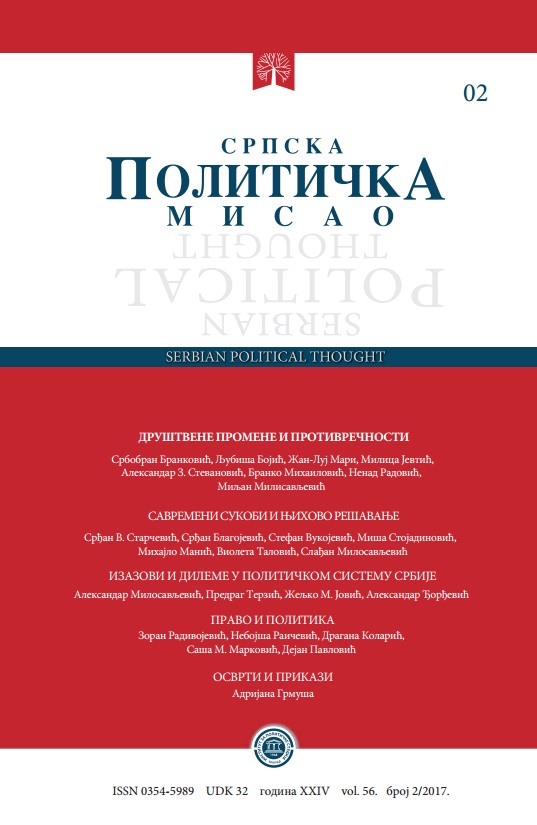Употреба и злоупотреба: ефекти грађанског новинарства у медијима у Србији
Use and Abuse: Effect of Citizen Journalism in the Media in Serbia
Author(s): Milica JevtićSubject(s): Media studies, Civil Society
Published by: Институт за политичке студије
Keywords: citizen journalism; professional journalism; Twitter; media freedom; Serbia
Summary/Abstract: Analyzing the impact of citizen’s journalism on professional reporting in Serbian media, more specifically, the impact of the use of social network Twitter on professional journalism, it could be concluded that citizens have significant impact on professionals, but that doesn’t mean permeability of information to the media public space. Considering the main hypothesis/assumption that instances of pressure on journalists and narrowing of media freedom influence enhanced civic participation on Twitter, and subsequently affect professional reporting, the author finds that civic activism and journalist’s response correlate to each other in the context of media freedom. Furthermore, author claims that the reach of this kind of activism is fairly limited. Increased citizen’s participation on Twitter is indicated in two specific situations - when there is no other source of information or, for researchers more evincive, in a situation where professionals didn’t fulfill the expectations of the public. To put a light on this phenomena, Twitter is seen as a useful tool to detect lack of professionalism in everyday routine, lack of media freedom, or cases where journalists and their editors, for some reason, were not opened to have whole aspect of story, in public. Focusing on the media landscape in Serbia, the results confirm this perception – according to findings, 80% of journalists value freedom by the value of 5 (scale 1–10), and at the same time 55,4% of respondents believe that there is a direct link between Twitter and media freedom. Since the expansion of Twitter, journalists explained that they have often found themselves in specific, unfavorable position which affects professional reporting, but they are aware of the enhanced possibilities for manipulation in a virtual community, which force their skepticism towards using information from social networks. Furthermore, editors of leading newspapers and TV stations in Serbia, according to their experience, underline their skepticism toward using social networks. In parallel, they observe they have to cope with new citizen’s activism in order to follow new behaviour of public as well as to protect journalist’s profession and its credibility. Since the expansion of Twitter, journalists explained that they have often found themselves in specific, unfavorable position which affects professional reporting, but they are aware of the enhanced possibilities for manipulation in a virtual community, which force their skepticism towards using information from social networks. Furthermore, editors of leading newspapers and TV stations in Serbia, according to their experience, underline their skepticism toward using social networks. In parallel, they observe they have to cope with new citizen’s activism in order to follow new behaviour of public as well as to protect journalist’s profession and its credibility. Focusing on media landscape in Serbia, it is obvious that media freedom and professional standards have been deteriorating over last 25 years, but it should also be pointed out that, after the wave of optimism in 2000’s, journalists have become disillusioned with their profession; journalists feel moral, ethical and economical degradation, they observe lack of legal security and they are not open to a new challenges. This is the reason why journalists, even through active in seeking for support, are distrustful to these non-traditional ways of communication. “Normalizing a Twitter” in professional routine means adoption of new communication process, having in mind what citizens think, observe, understand differently. However, this also means regulation of this communication in order to have both - active citizen in a public space and professional reporting in citizen’s interest.
Journal: Српска политичка мисао
- Issue Year: 2017
- Issue No: 2
- Page Range: 49-68
- Page Count: 20
- Language: Serbian

